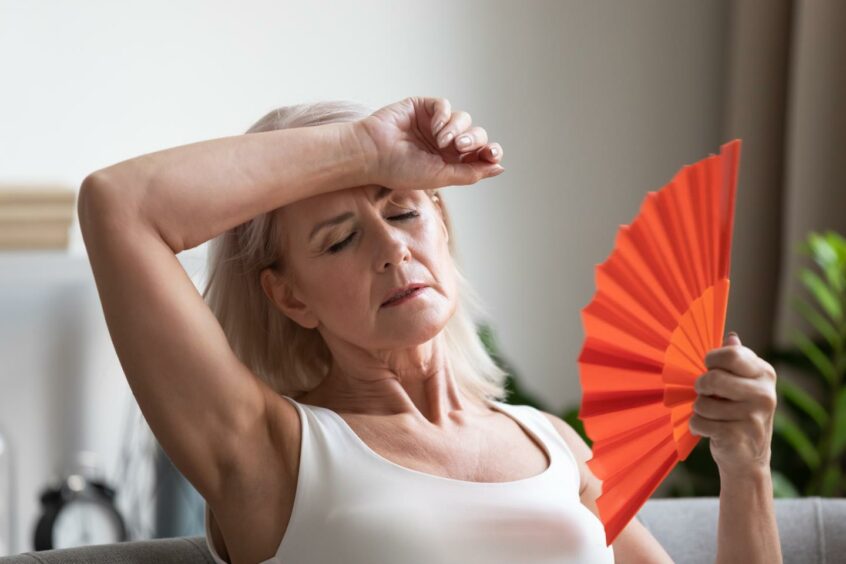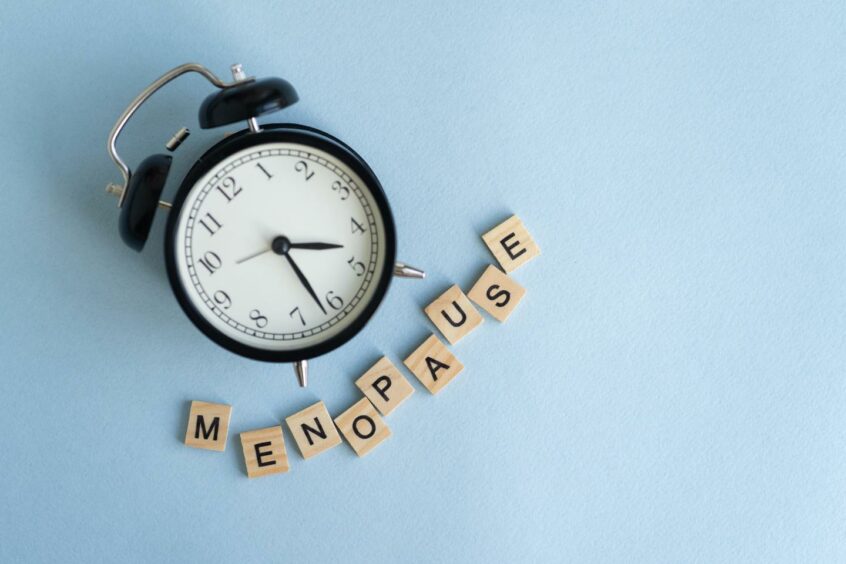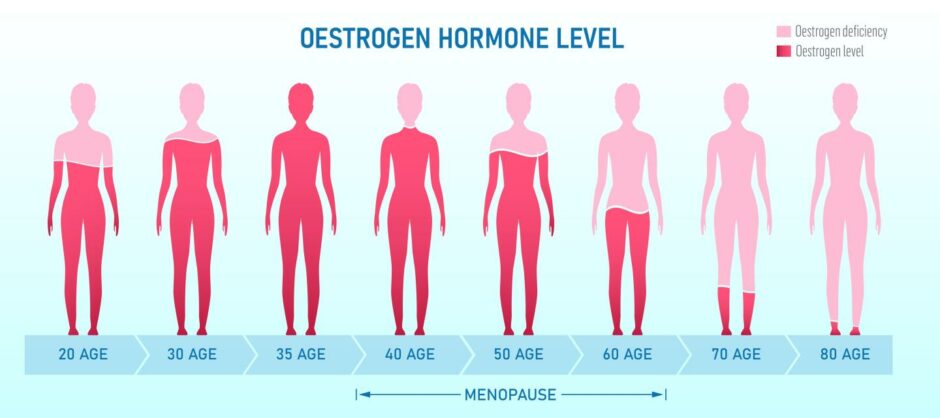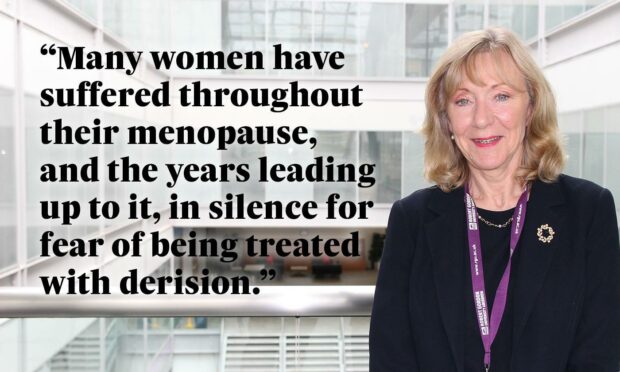Robert Gordon University’s clinical professor in nursing, Angela Kydd, writes that having a discussion about menopause, PPE and the Covid-19 pandemic is long overdue.
Menopausal women are the fastest-growing demographic in the workforce.
Menopause is a normal stage of life that has until recently remained a taboo subject.
It is the stopping of menstrual periods and, on average, naturally occurs at the age of 51, though it can happen much earlier.
It can also be induced by surgery, chemotherapy or radiotherapy for cancer.
Every woman has different experiences of their menopausal time, with some having few problems and others experiencing life-changing symptoms.
Warm workplaces like hospitals can be tough during menopause
Many women have suffered throughout their menopause, and the years leading up to it, in silence for fear of being treated with derision.
The British Menopause Society has listed more than 30 associated symptoms, including hot flushes, stress and anxiety, night sweats, joint aches, low mood, fatigue, mood swings and headaches.
This makes hospitals and care homes care sectors challenging workplaces for women undergoing menopause.

The environments need to be warm, the staff usually wear uniforms and access to cold drinking water and toilet facilities can be difficult.
There are nearly 150,000 people employed in the NHS in Scotland, with a median age of 46, of whom 77.4% are women.
Similar figures can be seen in the demographics of the care sector, ultimately showing that addressing this scenario and guaranteeing staff well-being should be a top priority for health and social care organisations.
PPE ‘exacerbates’ heat stress on menopausal women
The NHS employer’s website has guidance for HR departments to produce policies on menopause in the workplace.
However, despite the added pressure caused by the Covid-19 pandemic, little attention appears to have been paid to the impact of Personal Protective Equipment (PPE) on menopausal women.
Wearing protective clothing can exacerbate heat stress which can worsen several of the symptoms, including hot flushes.
The use of PPE has increased dramatically since March 2020. Yet, nearly two years into the pandemic, there appears to be little done to address this issue.
The Royal College of Nursing has recommended that managers limit the time that menopausal women must wear PPE, but this is a guide and not yet an employer requirement.
‘Employers are losing a skilled workforce’
Several other roles—including, firefighters, police, and coastguards, to name a few—wear PPE to minimise the exposure to hazards, and their adverse effects for menopausal women can no longer be ignored.
Of further concern, many women perceive menopausal symptoms to have a negative impact on their ability to work effectively.
A UK study found that women with severe symptoms had a higher chance of reducing their working hours or leaving employment.
This not only has an impact on immediate income but pensions and security in later life. Employers are also losing a skilled workforce.

Menopause is also now considered a crucial gender and age-equality issue, with symptoms often included within equalities legislation.
Dealing with its consequences should be part of maintaining an inclusive work environment so that a skilled workforce is not lost.
The NHS and care providers need to create an open, inclusive and supportive culture regarding menopause.
This includes improving the workplace environment and with special consideration for staff who must wear PPE.
Increasing awareness is ‘long overdue’
There have been, however, great moves forward in menopause awareness.
Most recently, the European Menopause and Andropause Society (Emas), a key international society that promotes and disseminates evidence-based care guidelines on menopause, launched a menopause and work charter.
Menopause is now being discussed more openly, with many workplaces acknowledging the need for staff to have organisational support.

The creation of World Menopause Day by the International Menopause Society, a global leader on women’s health and well-being in midlife, has also been a definitive step in the right direction.
But the date, which takes place annually on October 18, needs to be advertised widely and celebrated.
Increasing population awareness of pertinent issues concerning perimenopausal and menopausal women is long overdue.
More health news…
Gynaecologist’s tips for boosting your bone health during menopause
Alison Weatherhead: Why businesses can’t afford to ignore the menopause

